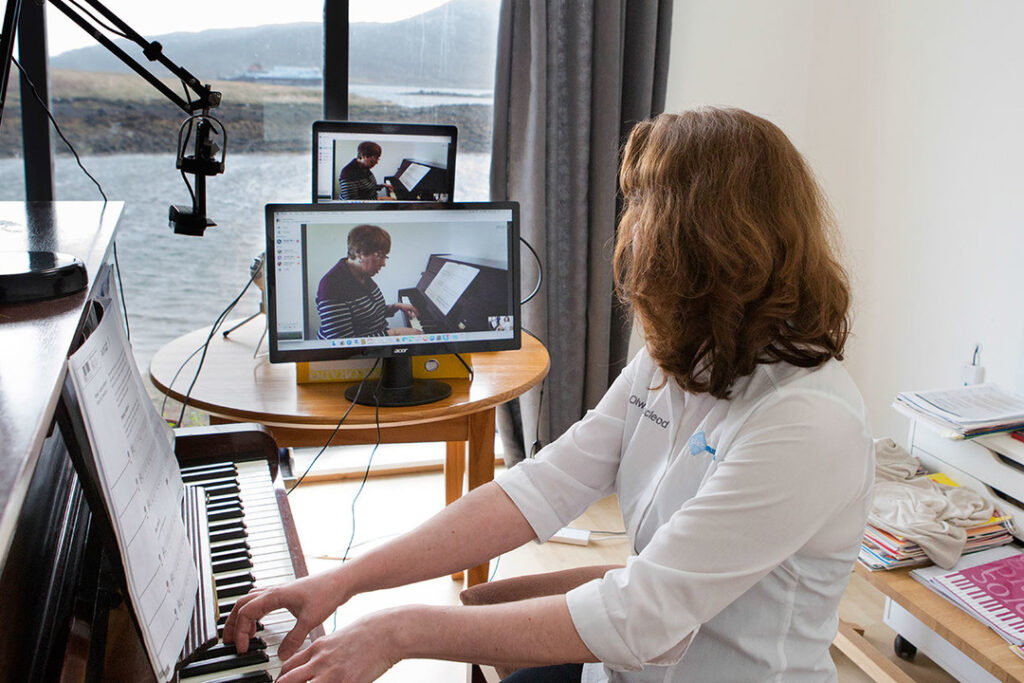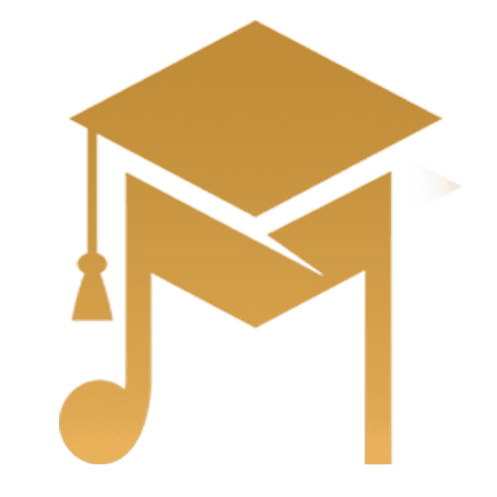5 Advanced Music Techniques You Can Learn Online
Every musician, whether beginner or advanced, constantly seeks ways to improve. While mastering the basics is essential, progressing to the next level requires a deeper understanding of technique, rhythm, expression, and versatility. In fact, developing advanced skills not only enhances performance but also allows musicians to explore new creative possibilities. Fortunately, Advanced Music Techniques Online provide structured methods to refine these skills effectively.
However, many musicians struggle to bridge the gap between intermediate and professional-level playing. This is often because traditional practice methods focus more on repetition rather than refining essential techniques. Fortunately, with the rise of online music education, it has become much easier to access expert guidance, structured lessons, and interactive tools that accelerate progress.
By integrating targeted exercises, real-time feedback, and personalized learning approaches, online courses help musicians build skills that would otherwise take years to perfect. Whether you’re a pianist looking to improve finger independence, a guitarist aiming to master complex rhythms, or a vocalist working on ear training and improvisation, learning online offers unmatched flexibility and efficiency.
In this blog, we will explore five crucial advanced skills every musician should master. Additionally, we’ll discuss how online courses can help refine each skill, making it easier to achieve precision, confidence, and musical fluency. So, if you’re ready to push your musical abilities to new heights, let’s dive in!
Finger Independence and Dexterity | Improve Control with Advanced Music Techniques Online

It is one of the most essential skills for instrumentalists. Whether you play the piano, guitar, violin, or any other instrument, having full control over each finger ensures smooth, effortless playing. Without proper finger dexterity, executing fast passages, intricate chord transitions, or complex fingerpicking patterns becomes challenging.
However, developing finger independence requires targeted exercises, patience, and structured practice routines. While traditional music training provides in-person instruction, online courses have revolutionized the way musicians approach this technique by offering step-by-step guidance, real-time demonstrations, and interactive exercises that help learners improve more efficiently.
Exercises to Strengthen Finger Independence
Different instruments require specific finger independence exercises. Here are some of the most effective ones taught in online courses:
- Hanon Exercises for Pianists: Hanon finger exercises help strengthen each finger individually, allowing pianists to develop even control and speed across the keyboard.
- Spider Walks for Guitarists: These exercises involve controlled movement of fingers up and down the fretboard, improving agility and coordination.
- Trill Drills for Violinists and Other String Players: Practicing rapid alternation between two notes enhances finger strength and flexibility.
Techniques for Improving Dexterity
Beyond independence, musicians must also build dexterity—the ability to move fingers effortlessly with precision. Online music courses provide customized dexterity exercises based on the student’s skill level, including:
- Slow-to-Fast Speed Transitions: Playing passages at a slow tempo and gradually increasing speed ensures muscle memory development.
- Alternating Finger Patterns: Shifting between different fingering patterns strengthens coordination between hands.
- Hand Isolation Drills: Practicing independent movements in each hand refines technical accuracy.
How Online Courses Help with Finger Independence
With structured online training, students can master finger independence through:
- Step-by-Step Instruction from Experts: Online courses provide guided lessons that help students develop proper hand positioning and technique.
- Interactive Exercises and Instant Feedback: Many platforms use AI-driven technology to detect mistakes and offer corrections.
- Flexible Learning Paces: Students can practice difficult exercises repeatedly without the pressure of keeping up with an in-person class.
- Specialized Warm-Ups and Drills: Courses often include warm-up routines tailored to specific instruments, ensuring efficient practice.
By integrating these online exercises into daily practice routines, musicians can significantly enhance their dexterity, precision, and control, leading to smoother performances.
Advanced Ear Training and Relative Pitch | Enhance Listening Skills with Advanced Music Techniques Online

A musician’s ability to listen critically and recognize musical elements by ear is crucial for overall musicianship. Whether you’re a singer, instrumentalist, or composer, having strong ear training skills allows you to identify pitches, intervals, chords, and harmonies accurately. This skill is especially important for improvisation, transcription, and playing by ear.
However, developing a refined musical ear is a challenging process that requires structured training and continuous exposure to sound recognition exercises. Online music courses provide interactive ear training exercises, customized lesson plans, and real-time pitch detection software that help students strengthen their listening abilities efficiently.
Interval Recognition for Better Musicianship
One of the foundational aspects of ear training is learning how to identify musical intervals—the distance between two notes. Online platforms offer structured lessons to help students differentiate between:
- Major and Minor Intervals: Recognizing the emotional qualities of different intervals improves pitch perception.
- Harmonic vs. Melodic Intervals: Learning to distinguish between simultaneously played notes (harmonic) and sequential notes (melodic) refines listening accuracy.
- Practical Application: Online courses often include real-world exercises where students identify intervals in songs and compositions.
Chord and Scale Identification
Beyond intervals, musicians must also learn to recognize chords and scales by ear. This is essential for:
- Understanding Chord Progressions: Being able to identify common progressions helps musicians play songs by ear and improvise harmonically.
- Scale Recognition Training: Learning how different scales sound enhances improvisation and melodic composition.
- Using Online Tools: Platforms like EarMaster and ToneGym offer interactive exercises where students can test their ability to identify chords and scales accurately.
How Online Courses Help with Ear Training
Online courses provide structured ear training exercises that are often more interactive and engaging than traditional methods. Here’s how they help:
- Customizable Training Levels: Students can adjust difficulty levels based on their progress, ensuring gradual improvement.
- Real-Time Feedback on Accuracy: Many online tools detect whether students identify pitches correctly and offer instant corrections.
- High-Quality Sound Samples for Reference: Digital lessons use professionally recorded sound samples, making it easier to hear subtle differences between notes.
- Game-Based Learning: Many platforms include interactive ear training games that make the learning process fun and engaging.
By consistently practicing intervals, chords, and scales with online lessons, musicians develop a more refined ear, which significantly improves their ability to transcribe music, improvise creatively, and perform with confidence.
Complex Rhythms and Polyrhythms | Master Advanced Timing with Online Music Lessons

Rhythm is the backbone of music, and mastering complex rhythmic structures is essential for advanced musicianship. While basic rhythms form the foundation of musical timing, complex rhythms—including syncopation, odd time signatures, and polyrhythms—add depth, sophistication, and uniqueness to a performance.
For drummers, pianists, guitarists, and even vocalists, being able to internalize intricate rhythms enhances versatility and allows them to perform confidently across various musical genres. However, mastering polyrhythms and unconventional time signatures requires structured guidance and repetitive practice with precise feedback.
Online music courses provide interactive rhythm exercises, guided metronome training, and real-time performance feedback, making them an excellent tool for learning complex rhythms effectively.
Understanding Polyrhythms and Syncopation
- Polyrhythms occur when two or more contrasting rhythms are played simultaneously. For example, playing triplets in one hand while keeping a duple rhythm in the other is a common challenge for drummers and pianists.
- Syncopation shifts the emphasis from strong beats to weaker beats, creating a groove often heard in jazz, funk, and Latin music.
Breaking Down Odd Time Signatures
Traditional music follows 4/4 or 3/4 time, but advanced musicians often encounter odd time signatures like:
- 5/8, 7/8, or 11/8: Common in progressive rock, jazz fusion, and world music.
- Changing Meters: Some compositions alternate between different time signatures, requiring quick rhythmic adaptability.
How Advanced Music Techniques Online Courses Help with Rhythm Mastery
With structured online training, musicians can refine their rhythmic precision through:
- Metronome-Based Exercises: Online tools allow students to practice with adjustable metronomes that gradually increase complexity.
- Loop-Based Training Modules: Many online platforms offer rhythm loops to practice polyrhythms at different tempos.
- Visual and Audio Feedback: Interactive apps analyze rhythm accuracy and provide immediate corrections.
- Guided Drumming and Clapping Exercises: These help musicians internalize complex rhythmic patterns through muscle memory.
By utilizing online rhythm exercises, musicians develop greater rhythmic independence, making it easier to navigate intricate compositions and perform confidently in ensemble settings.
Improvisation and Musical Expression | Learn to Create Music Spontaneously with Online Coaching

Improvisation is one of the most valuable skills for musicians, allowing them to compose music on the spot, express emotions freely, and respond dynamically to other musicians in an ensemble. Whether you’re a jazz pianist, a blues guitarist, a classical violinist, or a contemporary vocalist, improvisation enhances creativity and musical fluency.
Many musicians struggle with improvisation because it requires a deep understanding of scales, chord progressions, phrasing, and rhythmic flexibility. While traditional learning methods often focus on memorization, online courses encourage students to experiment with different styles, techniques, and harmonic approaches in a structured way.
Essential Improvisation Techniques
- Scales and Modes: Understanding major, minor, and modal scales (e.g., Dorian, Phrygian, Mixolydian) provides a foundation for improvisation.
- Chord Progressions and Harmonic Awareness: Being able to anticipate and respond to chord changes is crucial for soloing effectively.
- Phrasing and Articulation: Developing a unique voice in improvisation requires varied articulation, dynamics, and note emphasis.
Exploring Different Improvisation Styles
Online courses allow students to learn genre-specific improvisation techniques, including:
- Jazz Improvisation: Incorporating swing rhythms, bebop scales, and extended harmonies.
- Blues and Rock Soloing: Using pentatonic scales, bends, and vibrato for expressive solos.
- Classical Ornamentation: Adding trills, mordents, and runs to embellish melodies.
How Advanced Music Techniques Online Courses Enhance Improvisation Skills
- Interactive Backing Tracks: Students can practice soloing over high-quality backing tracks in various styles.
- AI-Powered Feedback: Advanced online tools analyze improvisations and suggest scale or chord choices for improvement.
- Live Online Workshops and Jam Sessions: Many platforms offer virtual jam rooms where musicians can improvise with peers.
- Structured Play-Along Exercises: Step-by-step improvisation courses gradually introduce new concepts, helping students build confidence.
By integrating improvisation training from online courses, musicians develop creativity, spontaneity, and expressive freedom, making their performances more engaging and dynamic.Advanced Music Techniques Online
Extended Techniques for Instrumentalists | Explore New Sounds with Advanced Music Techniques Online

Extended techniques push the boundaries of conventional instrumental playing, allowing musicians to explore new textures, timbres, and expressive possibilities. Whether in contemporary classical music, avant-garde jazz, or experimental genres, extended techniques add uniqueness and character to performances.
These techniques often require precise control, specialized training, and guided practice, which online courses provide through detailed video demonstrations, slow-motion analysis, and expert coaching.
Unique Instrumental Techniques for Advanced Musicians
- String Players (Violin, Viola, Cello, Guitar):
- Col Legno: Striking the strings with the wood of the bow.
- Artificial Harmonics: Producing high-pitched overtones with light touch.
- Percussive Finger Tapping: Popular in modern guitar playing.
- Pianists:
- Prepared Piano Techniques: Placing objects on strings for altered sounds.
- Inside-the-Piano Effects: Strumming or muting strings manually.
- Cluster Chords: Playing multiple adjacent notes with the palm or forearm.
- Wind and Brass Players:
- Multiphonics: Producing multiple tones simultaneously.
- Flutter Tonguing: Creating a rapid, rolling effect.
- Harmonic Overblowing: Expanding the instrument’s natural range.
How Online Courses Help Musicians Master Extended Techniques
- Slow-Motion Video Tutorials: Online courses provide high-definition breakdowns of advanced techniques.
- Virtual One-on-One Coaching: Students receive personalized guidance from world-class musicians.
- Notated Examples and Play-Along Exercises: Learning extended techniques through sheet music and guided audio examples.
- Access to Experimental Music Resources: Online platforms often include contemporary repertoire showcasing these techniques.
By studying extended techniques through online courses, musicians can expand their sonic palette, experiment with new performance styles, and stand out as innovative artists.
Why The Mystic Keys Is Best For Advanced Music Techniques Online

With so many online music education platforms available, finding the right one can be overwhelming. While some platforms offer a vast library of pre-recorded lessons, others provide live coaching but lack structured progression. The Mystic Keys bridges this gap by combining expert-led instruction, interactive learning, and personalized feedback—all within a structured curriculum that adapts to your needs.
How The Mystic Keys Compares to Other Platforms
| Feature | The Mystic Keys | Generic Video Courses | Free YouTube Tutorials |
|---|---|---|---|
| Live Instructor Feedback | ✅ Yes | ❌ No | ❌ No |
| Structured Learning Path | ✅ Yes | ❌ No | ❌ No |
| Personalized Progress Tracking | ✅ Yes | ❌ No | ❌ No |
| Genre-Specific Training | ✅ Yes | ✅ Limited | ✅ Limited |
| Interactive Exercises & Quizzes | ✅ Yes | ❌ No | ❌ No |
| Play-Along Tracks & Backing Sessions | ✅ Yes | ❌ No | ❌ No |
Unlike generic video courses, The Mystic Keys ensures that every lesson builds on the last, helping you develop skills progressively. Instead of simply watching tutorials, you’ll engage with interactive exercises, structured assignments, and expert guidance to refine your technique.
Why Choose The Mystic Keys?
🎼 Expert-Led Learning: Receive guidance from professional musicians with real-world experience.
🎼 Flexible Scheduling: Learn at your own pace with on-demand lessons and live coaching.
🎼 Hands-On Practice: Apply new techniques through structured play-along tracks and improvisation sessions.
🎼 Diverse Musical Styles: Master techniques in jazz, classical, rock, fusion, and more.
At The Mystic Keys, we don’t just teach music—we help you become a better musician through structured learning, personalized feedback, and interactive training.
Final Thoughts

Mastering advanced music techniques requires commitment, patience, and structured learning. However, with the right approach, anyone can enhance their skills, refine their technique, and express music more confidently. Thanks to online learning, achieving musical excellence is now more accessible than ever.
Why Advanced Music Techniques Matter More Than Ever
Without a doubt, advancing beyond basic skills opens up new creative opportunities. Whether you are looking to perform with greater precision, compose intricate melodies, or improvise effortlessly, mastering advanced techniques is essential. More importantly, these techniques give musicians the ability to adapt to different styles, explore new genres, and refine their artistic expression.
How Online Learning Makes Mastery Easier and More Effective
Unlike traditional methods, online courses provide structured lessons that focus on step-by-step skill development, interactive exercises, and real-time feedback. Furthermore, they allow musicians to practice at their own pace while still receiving expert guidance. With access to video demonstrations, detailed explanations, and specialized exercises, learners can quickly identify weaknesses and make consistent improvements.
Additionally, online learning offers a variety of resources, including play-along tracks, ear-training apps, and customized practice routines, making it even easier to develop advanced techniques. As a result, students can retain information better, progress faster, and stay motivated throughout their journey.
The Mystic Keys | Your Pathway to Excellence
When it comes to mastering advanced music techniques online, The Mystic Keys stands out as a top choice. Not only do they provide expert-led courses, but they also offer personalized training programs, interactive assignments, and flexible scheduling. Moreover, their instructors are dedicated to helping students achieve professional-level skills with confidence and precision.
Whether you’re a pianist, guitarist, vocalist, or drummer, The Mystic Keys ensures that every lesson is engaging, effective, and tailored to your musical goals. Because of this, students experience faster improvement, better technique retention, and a more rewarding learning experience.
Advance to the Next Level in Your Music Exploration.
Now is the perfect time to invest in your musical growth. By incorporating advanced music techniques into your practice routine, you will gain greater control, expressiveness, and technical fluency. Even more importantly, with the support of structured online lessons, expert instructors, and immersive learning tools, you can achieve results that were once difficult to reach.
So why wait? Start exploring The Mystic Keys’ advanced courses today and experience the transformative power of online music education! 🎶
Our community extends beyond the classroom with online resources, discussion forums, and support channels that are available 24/7. This ensures that students always have access to the resources they need to continue learning and practicing, no matter where they are. It is the continuous support and sense of belonging that makes The Mystic Keys the Best Choice for Advanced Music Techniques Online Learners. Explore The Mystic Keys
For more information and exciting resources about learning music, visit our website at The Mystic Keys. For more music content and exciting offers follow us on
Facebook, Instagram, YouTube, LinkedIn, Twitter, Pinterest, Reddit, Threads, and Quora.
Related Blogs
Advanced Piano Techniques | Exploring Arpeggios, Scales, and More
Congratulations! You’ve traversed the initial hurdles of piano playing and are now venturing into the exciting realm of advanced techniques.
Playing Hymns with Feeling | Techniques for Traditional Worship
Playing hymns with feeling is an art that blends technical proficiency with emotional expression. Traditional worship services, where hymns play a central role, demand a special sensitivity from musicians.
How to Improve Your Vocal Techniques in Carnatic Music
Mastering the art of Carnatic vocal music requires dedication, consistent practice, and a keen understanding of vocal techniques.








